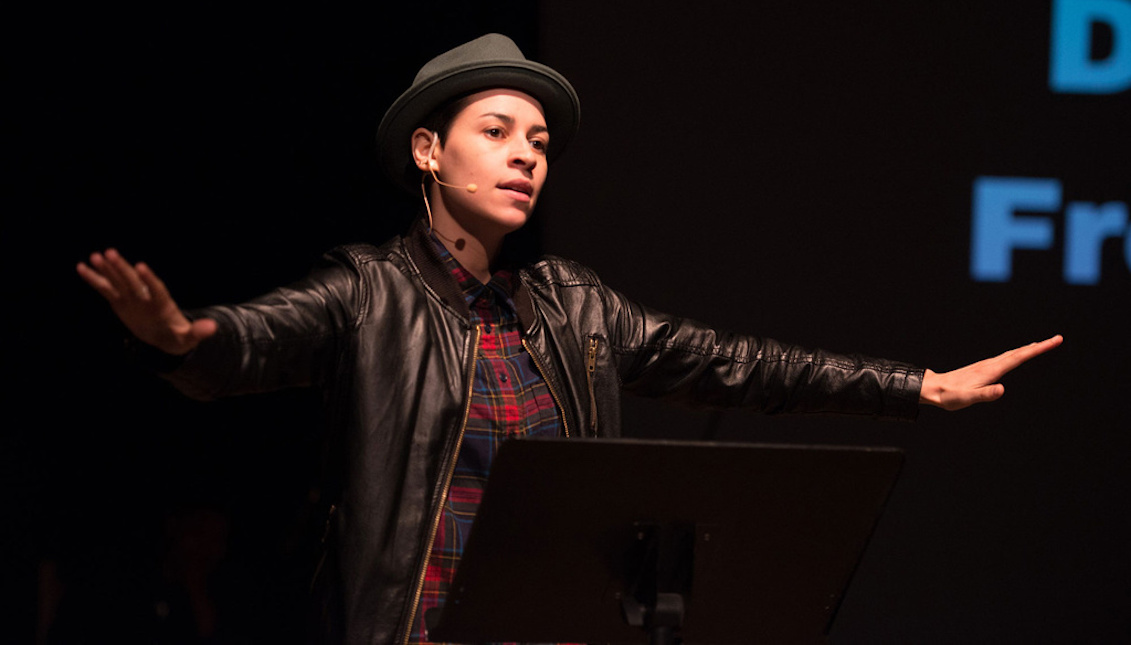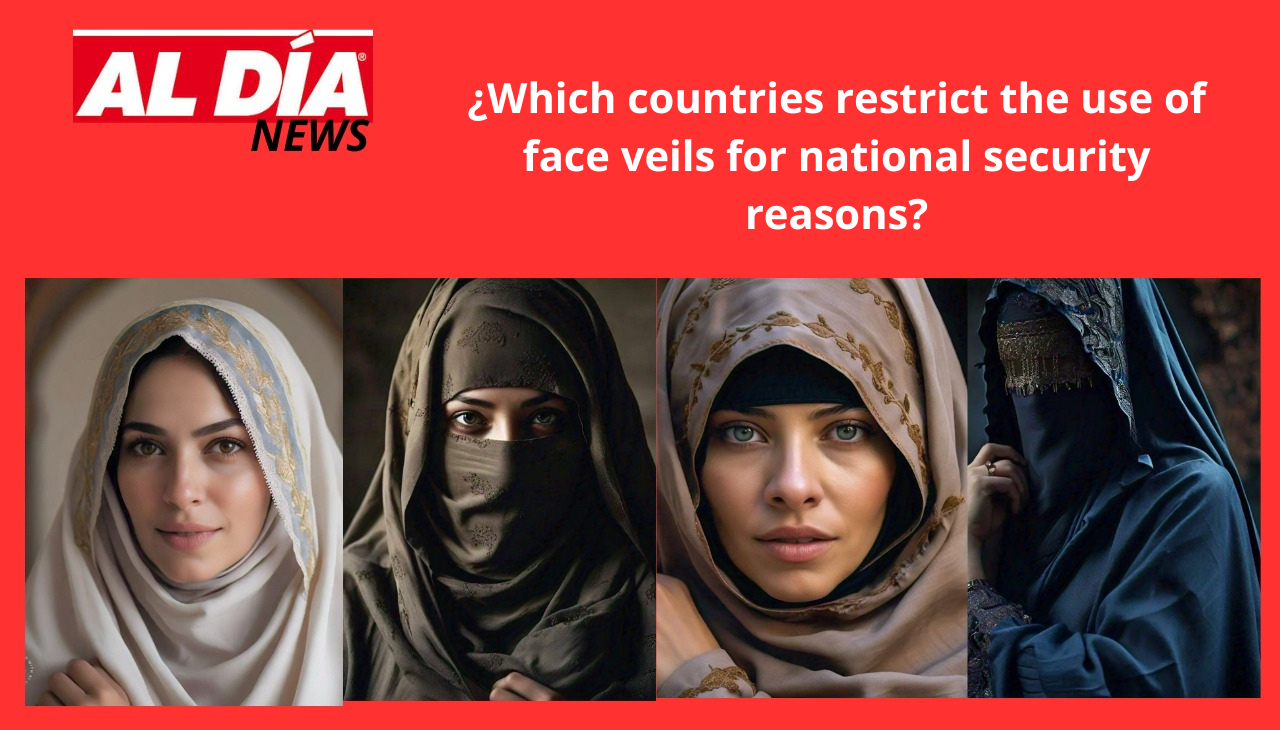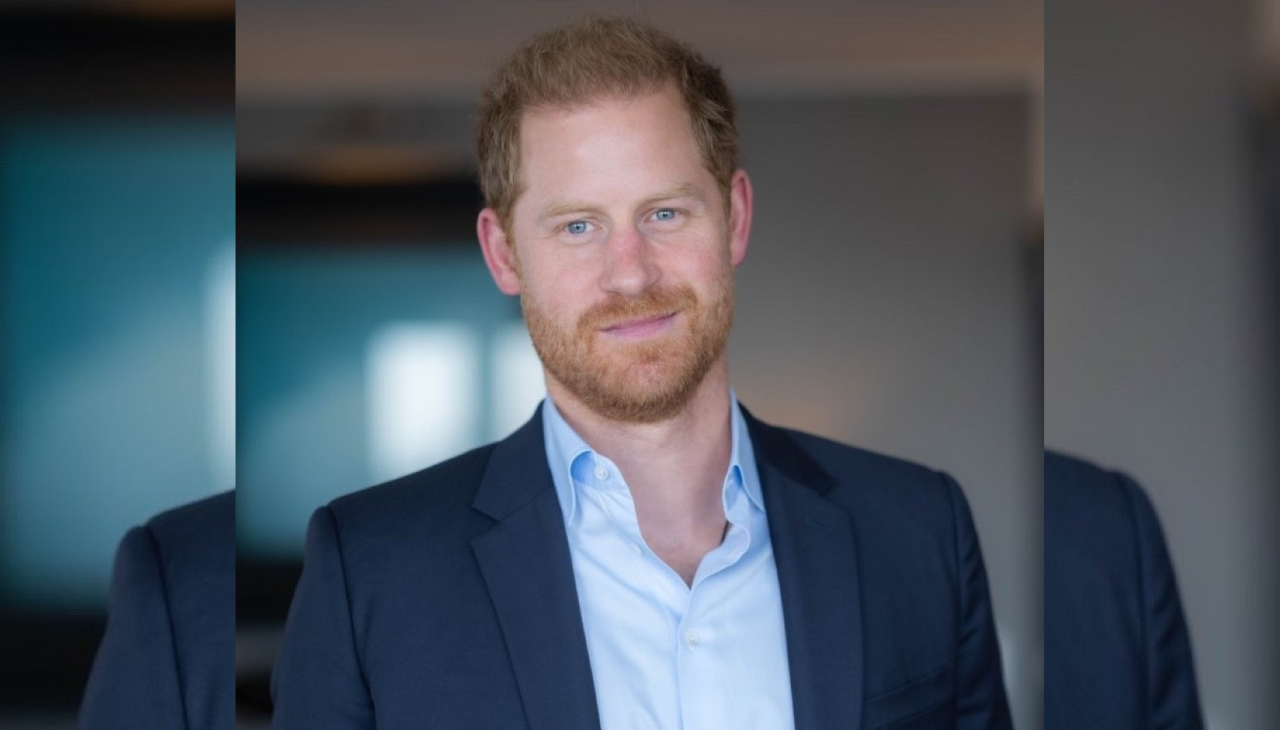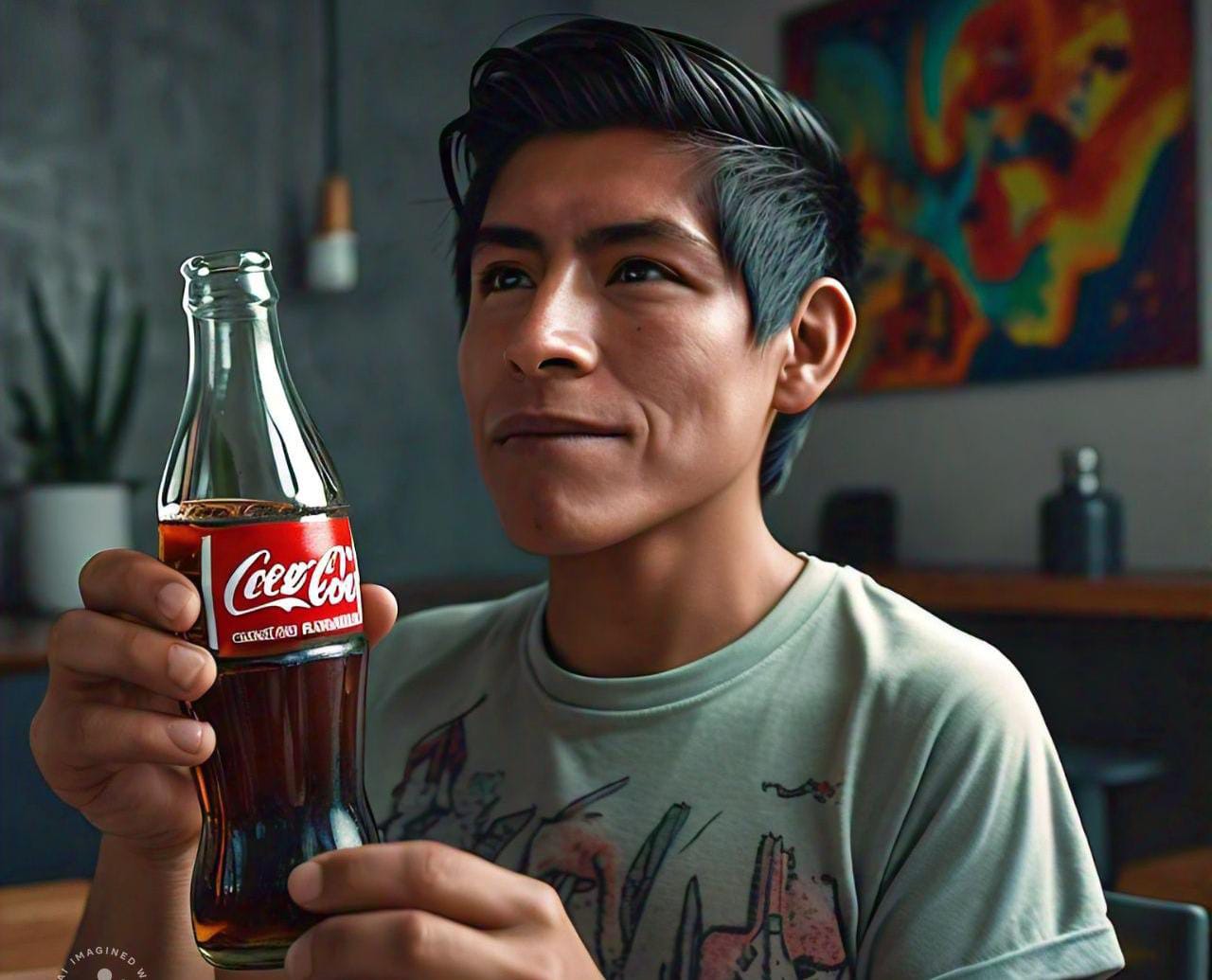
Denice Frohman is active and present
After years of working in poetry and education, 31-year-old Denice Frohman speaks about immigration, race, ethnicity and what it means to be active and present in America’s new politics.
After years of working in poetry and education, 31-year-old Denice Frohman speaks about immigration, race, ethnicity and what it means to be active and present in America’s new politics. ALDÍA interviewed the half Puerto Rican/half Jewish artist on the role of poetry and education, catching up with her current work.
If we were talking to someone from Latin America who doesn't know you and just saw your video on YouTube, how would you introduce yourself?
My name is Denice Frohman, and I'm a poet, an educator and a performer. I create art for social change. Most of my work focuses on identity and on the tension between the stories that we tell about ourselves and the stories that we tell about each other and the stories that are told about us, since those three things can be different: how we see ourselves, how other people see us and how we see them. Most of my work focuses on race and ethnicity and gender and sexuality. I'm sort of trying to subvert harmful narratives around people that identify like I do.
I think my work is part affirming and celebrating myself, and people who look like me, challenging my community and other communities to see each other a little bit more clearly.
How do you manage to join education and poetry?
That's really good question that I don't get asked a lot.
I was working at a museum, I had a 9-to-5 job, I worked at the Franklin Institute, which is a science museum in Philadelphia, where I had a great time.
I had the opportunity to teach a poetry workshop at the Science Leadership Academy, a high school in Philadelphia that the museum has a partnership with. I never taught before in my life. I had already been writing but I never taught and I fell in love after the first class.
I wanted to be around young people all the time because not only did I feel like I had something to offer but beyond that I loved what they offered me; I loved how we were both teaching and learning together.
Young people really forced me to be honest. They forced me to really look at myself in the mirror and to try to be as honest as possible.
I fell in love with teaching and I feel that teaching, art, my work as a writer and a performer and my work in the classroom are very much linked together. They have a very deep relationship with each other; one sharpens the other, one makes the other better.
When I'm writing I know that there are maybe poems that haven’t been written and that I need to; I then go into the classroom and I watch my students just be so vulnerable in front of each other that it just inspires me to also be vulnerable.
I do feel that my work in the classroom is really connected to what I want to contribute to my communities, trying to raise a generation of young writers who understand the power of their voices and the importance of their stories, that their stories matter and therefore they matter. That's what I try to do with my poetry.
Have you ever tried to write in Spanish?
I use Spanglish in my poems but I'm not fluent in Spanish, which is something that I'm writing a lot about. I'm starting to write about what it means to be multicultural and mixed.
My mother is Puerto Rican and my father is Jewish. When I was growing up bilingual education was a sensitive topic. People in the United States were worried, having the perception that learning more than one language would confuse you, would confuse kids.
There were so many of us.
There are some young people who both of their parents are Latinos and they are not fluent. That has to do with pressures of being “Americanized” and “assimilation” and all of that stuff that we push back against now.
But yes, one of my personal goals is to become as close to fluent as I can in the language. I'm very close to my Puerto Rican identity. It means a lot to me. I'm able to have a conversation with my “tías” and my “tíos” back on the Island but I definitely want to get sharper.
There was a generation of poets in Latin America that used poetry to vindicate certain social movements back then. Octavio Paz, for example. But at the same time there's a lot of romantic poetry that became the trademark of Latin American literature. I'm thinking about Neruda, Benedetti, Borges and Cortazar. One way or another, after a few decades, poetry was overlooked in younger generations. Considering this, how do you think poetry can make a change right now?
There's a reason why artists, poets and writers are marching in rallies. There are reasons why in Chile they were arrested, as well as in Puerto Rico. There's a reason why in some parts of the world poets were put in jail for speaking out.
It is because we are the truth tellers we are the storytellers. We try as honestly as possible to point at the injustices in the world, to speak out against inequality.
We are also the stewards of humanity in some way. We preserve the qualities that makes us human and what it means to love each other, to care.
Writing is dangerous. Speaking out is dangerous, because we challenge power. We always challenge Power. The personal is political. So I think that particularly now, in the United States context - because I don't want to speak for the world since there are a lot of different perspectives - we need everyone to speak up. All the poets and all the writers and all the musicians and all the painters, we need to step into our gifts and speak out. We need to push back so that we don't get used to this. You don't normalize being under a dictatorship, which is what it feels like. We need to create as much as possible again to preserve our sense of humanity and also to let those in power know we are not going to be silent.
How do you perceive what's happening United States right now? What do you think it's going to happen and what do you think is your role in this circumstance?
I think that in some ways the work is the same. Even though Trump was elected, he did not invent the problems that we have. We had those problems before him. He is a representation of a lot of those issues - bigotry, xenophobia, homophobia, sexism and racism and white supremacy, but that preceded him, it already existed.
At the same time, because of his position, he has now embodied, encouraged and is furthering that kind of thinking, the idea that there's an “us” and a “them”, and that we can only survive if we have an enemy to conquer. And that's very dangerous. That message is spreading.
From my perspective, I feel that my work is the same except that there is more of a purpose now, there's an urgency, an immediate urgency to do more, to do as much as possible, to create, to create, to create.
And again I'm not going to make any guarantees of what's going to happen, what I will say is that I'm going to be present and that I'm going to be active, and that I'm going to do everything that I can to step into my gifts in a collective and a safe space to try to speak out against what's happening, but the work is urgent, that's for sure.
There's a greater sense of urgency because there's a lot more at risk because we know what we are up against now. We know now that the power that has always existed somewhere in our political system is now at the head of it.
We’ve already done the past. We need to move forward. The people in power, they want to take us back to how it used to be and I think that writing is then incredibly important.
Through writing you can imagine another way of being. Using your radical imagination you can envision another world and that's why we need writers and poets too because this world isn’t working, is not working for anybody. There's war, there's poverty, there's homophobia, there's hatred, there's blood. We need to envision another way to relate to one another.
You think poetry is a way?
I think it's one of the ways.
How do you approach the feeling of being an immigrant through poetry?
Being an immigrant, a “foreigner” or a “stranger” is a way of being an “other”. I try to tell Young Latino students that what makes them different is not anything that makes them less than, in fact it makes them valuable.
I try to tell them that their voices matter, that their stories matter and that anybody that tries to tell them that they don't belong is wrong. You don't get to say that to somebody else. I really try to instill in them a sense of confidence; I try to show them that “hey, I'm here using my voice and my platform, being myself and telling my story. You can do the same thing if you want to”.
I try to make a lot of connections with them in terms of where I come from and my experiences. But everybody has a different experience. Some of those Latino students are immigrants, some of them first generation, some of them fourth generation, some of them speak only Spanish, some of them speak only English, some of them are bilingual.
Latino is a big umbrella term. A young kid from Chile, another one from Mexico and another from Puerto Rico, they have three different experiences but in some ways they can relate to one another.
I really don't want young Latino students to feel that they do not belong or that they don't have power because they do have power, their stories matter. That's what I try to emphasize in my classroom when I talk to them.
What's your particular story?
I hated poetry in high school. I really didn't like it. I thought it was for white people. I didn't think that Latinos wrote poetry because I wasn't exposed to that. Throughout my public education - I went to public school in New York City - I had that misconception.
But in college I got exposed to spoken word and I started reading poets of color like Gloria Anzaldúa and Sandra Cisneros, who opened a whole new world for me.
I learned that poetry has always looked like us, it has always sounded like us, and that poetry is for us. So I started to tell my own story and it was a place to put everything I was questioning about myself and the world.
What are you doing right now?
Right now I'm working on my first book, I'm also on a tour around the country, this is my fourth year. In between the book speaking to young people all over the country. I’m also one of the organizers of the Philly Youth Poetry Movement. We are a Youth poetry organization in Philadelphia and we work with young people. We have free workshops every Saturday, we have monthly open mics, we have a slam league and we have a lot of accessible programs for young poets.
Young writers, young rappers, anybody who wants to express themselves they are welcome to come.










LEAVE A COMMENT:
Join the discussion! Leave a comment.